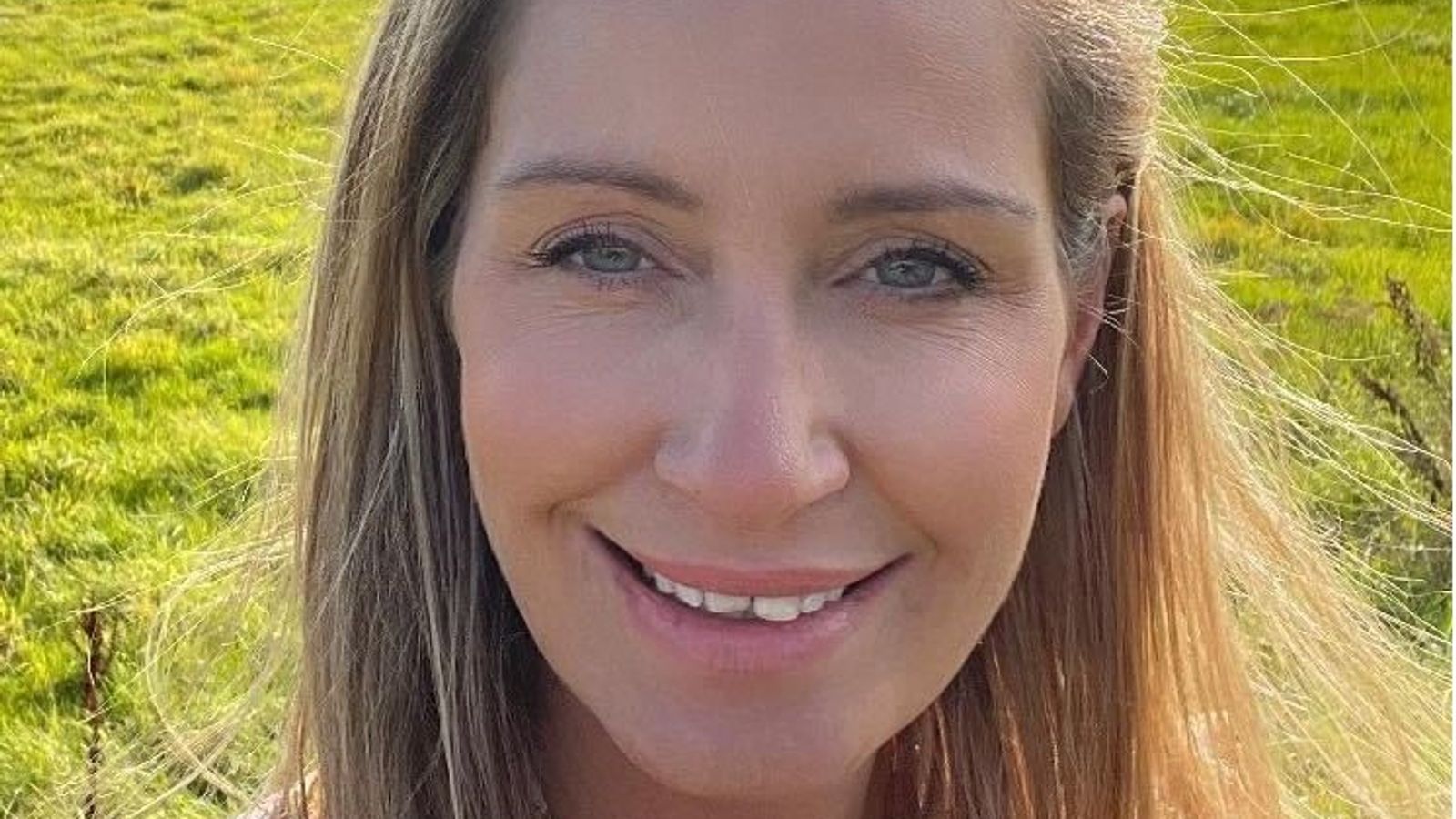Nicola Bulley: Independent search team has sonar ‘which can see every stick and stone on riverbed’

An independent underwater rescue team joining police looking for Nicola Bulley will be using a high-spec sonar “which can see every stick and stone lying on the riverbed”.
The mother-of-two went missing in Lancashire on the morning of Friday 27 January while walking her dog, and officers’ “main working hypothesis” is that the 45-year-old fell into the River Wyre near St Michael’s on Wyre village.
But her family and friends have claimed there is “no evidence whatsoever” behind this.
Specialist Group International’s dive team will be joining the search on Monday morning after the company originally offered its help on social media.
SGI’s chief executive, Peter Faulding, told Sky News: “Let’s get this water searched so it can be either confirmed or denied if Nicola is actually in this river.”
He said his company’s £55,000 side-scan sonar has a high frequency of 1,800 kilohertz and “we’ve got a very high hit rate” with the equipment.
Police also have a side-scan sonar but “our sonar is probably a bit more superior”, he said, adding: “I’m not sure what frequency they will be using.”
Mr Faulding said it was a “particularly long stretch of river” for police to search “because they’re doubling up as a dive team as well”.
“So it is a huge task for the police.”
Advertisement
Please use Chrome browser for a more accessible video player
2:03
Retracing Nicola Bulley’s journey
“It’s a vast area of water” so there will be “more hands on deck”.
He said he had “worked on hundreds of these cases, and we always, generally find people within the hour in lakes etc”.
“We’re just bringing an extra expertise.”
Read more:
First images released of dog walker on day she vanished
Missing dog walker’s movements before she disappeared
Daughters asking ‘when is mummy coming home?’
How will SGI help?
Mr Faulding said the SGI team will be tasked in the morning by the police search adviser with looking in a specific stretch of river.
He explained: “Once he says ‘I want this piece of river searched’ it will be down to me to actually search that piece of river with my team.
“So they won’t tell us how to do it, they will just say ‘this is a stretch of river what we need doing, and can you please do that and report back’.”
He said: “If there is a body in the river, our sonar will detect it.”
SGI carries out all the underwater search operations across the whole of the South East for the police, Mr Faulding said.
He said his sonar will probably start from the weir downwards “and identify any possible targets”. It can generally cover about 10 miles of river a day, he added.
Mr Faulding also cautioned: “Sometimes you can get deep pools of water where the sonar can’t quite get to and that’s where you have to put the diver in, but this river winds around and there’s deep pools, there’s shallow bits, so it’s a lot of work.”
“We will work a long day and continue until we finished,” he explained.
How did SGI get involved?
Mr Faulding said that SGI originally offered its services on Facebook.
“We just said we will assist if required, but they [the family] came straight back and then they went to the police and the police, via that, contacted us.
“And so we’ve had very productive conversations. We work with the police all the time.”
In a statement, Lancashire Police said SGI will be deployed under its direction and will “join an already large, multi agency search operation involving a wide variety of search assets and resources”.
“Their capability will overlay what has already been, and continues to be done, in order to give extra search coverage along what is an extremely challenging environment to search.”